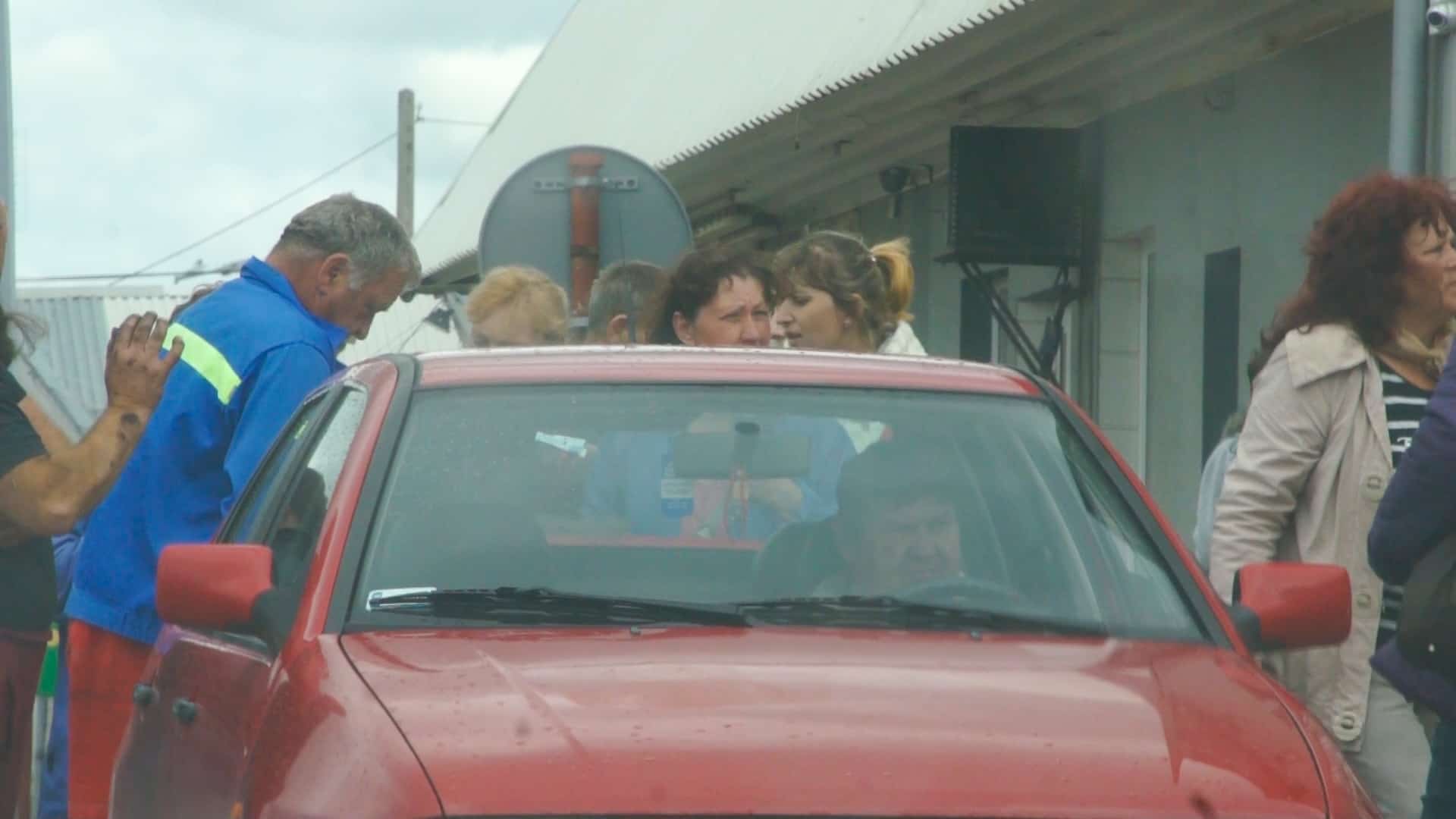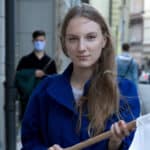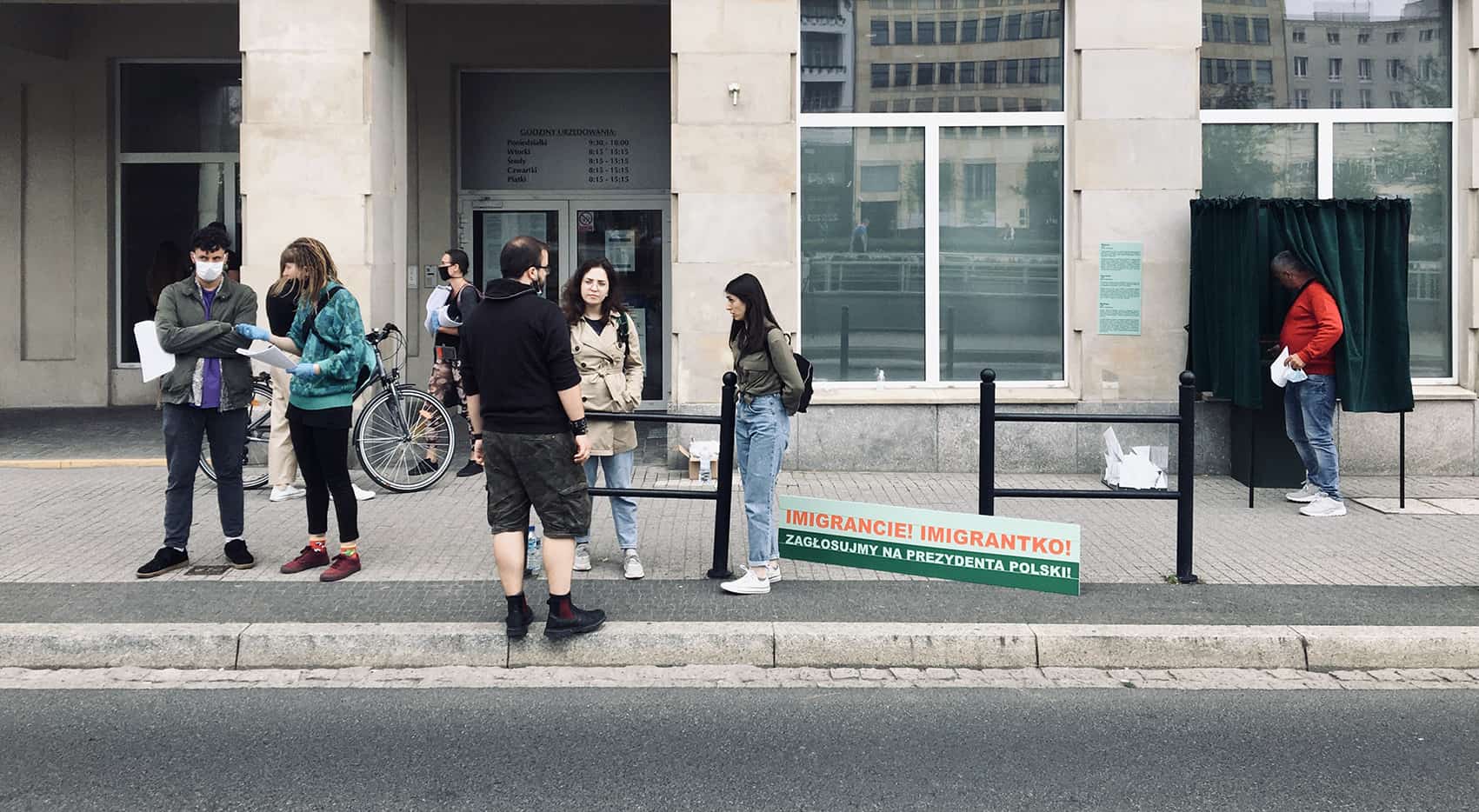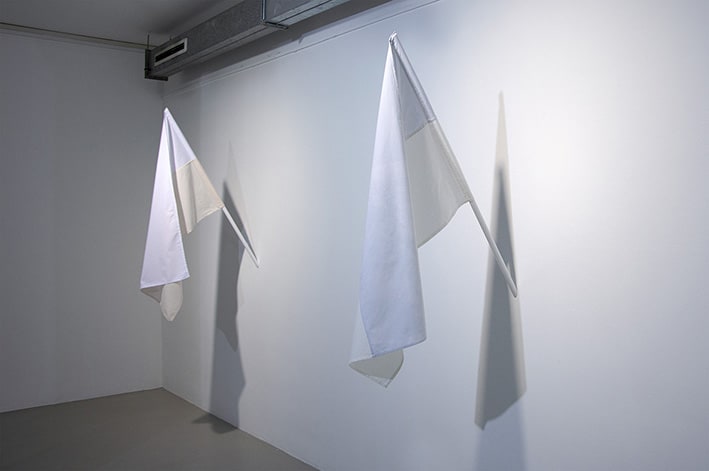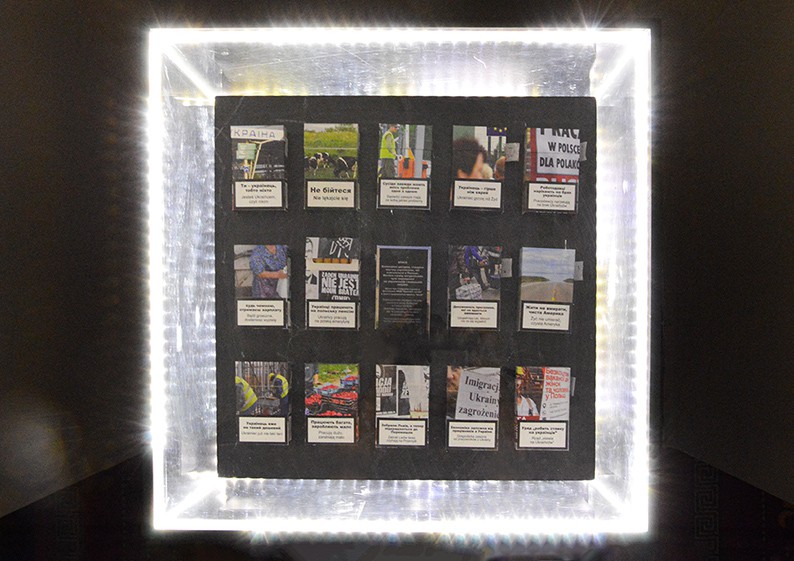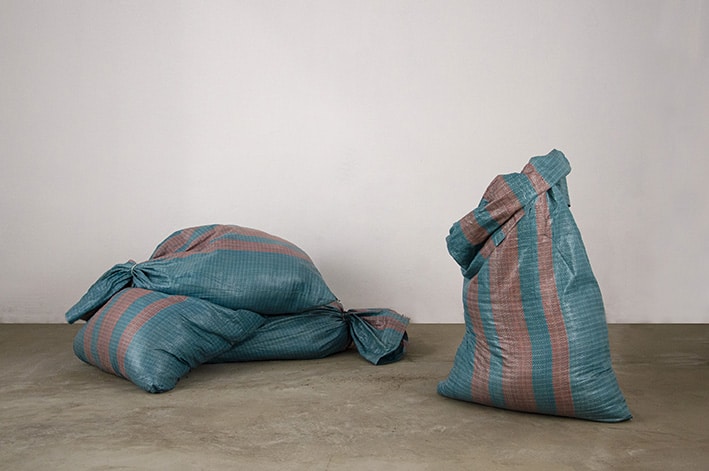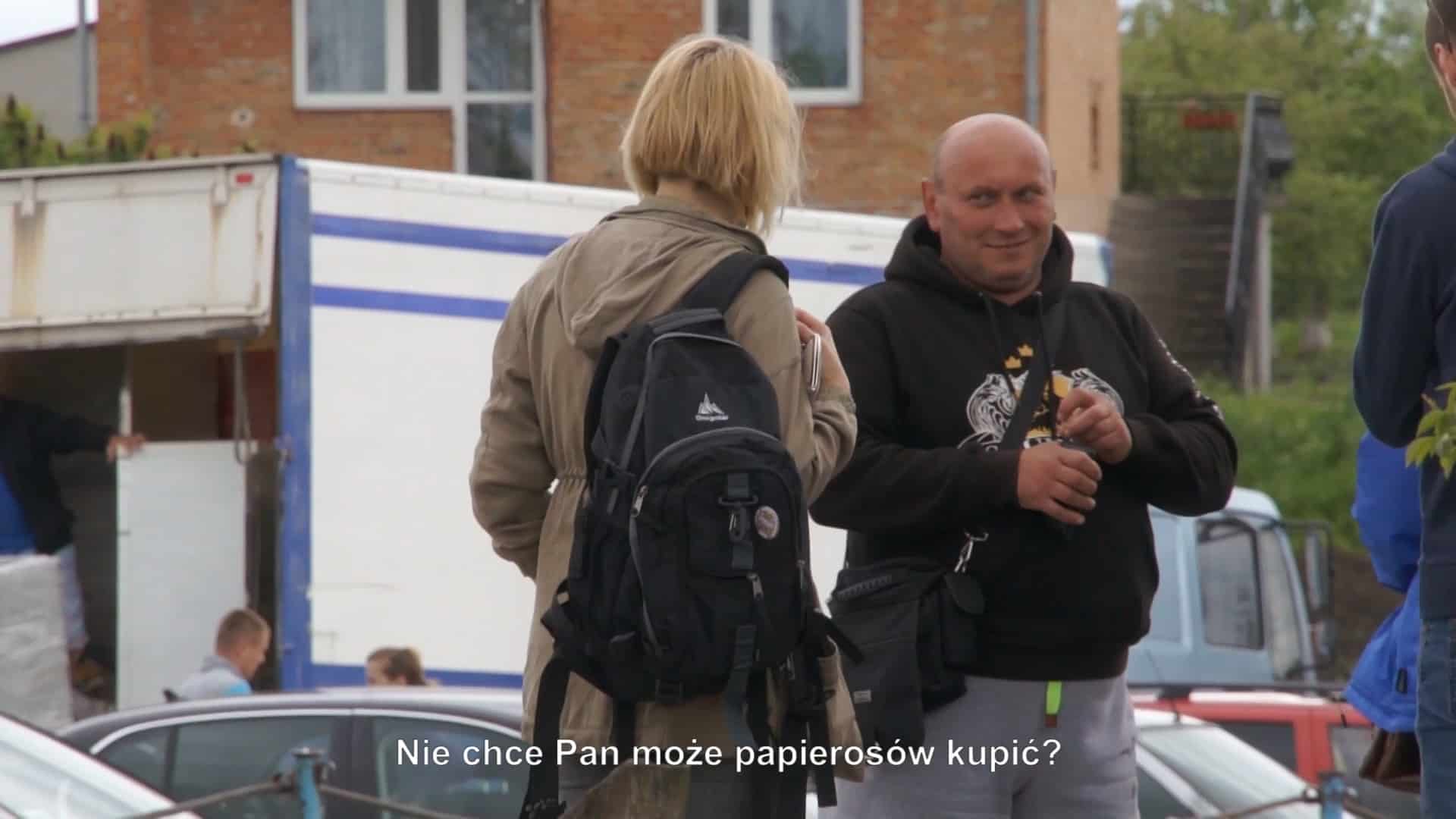Marta Romankiv – was born in 1995 in Lviv, Ukraine. She is an interdisciplinary artist who created art installations, video works and social situations. As an artist, she is interested in various types of minorities. Particularly, her attention focuses on the issues of nationality, citizenship and related social inequalities, as well as formal and identity problems. Her projects are usually participatory in nature and are situated on the border of areas of social activity, science and art. She lives and works in Poland. She got the third prize at the Allegro Prize Competition.
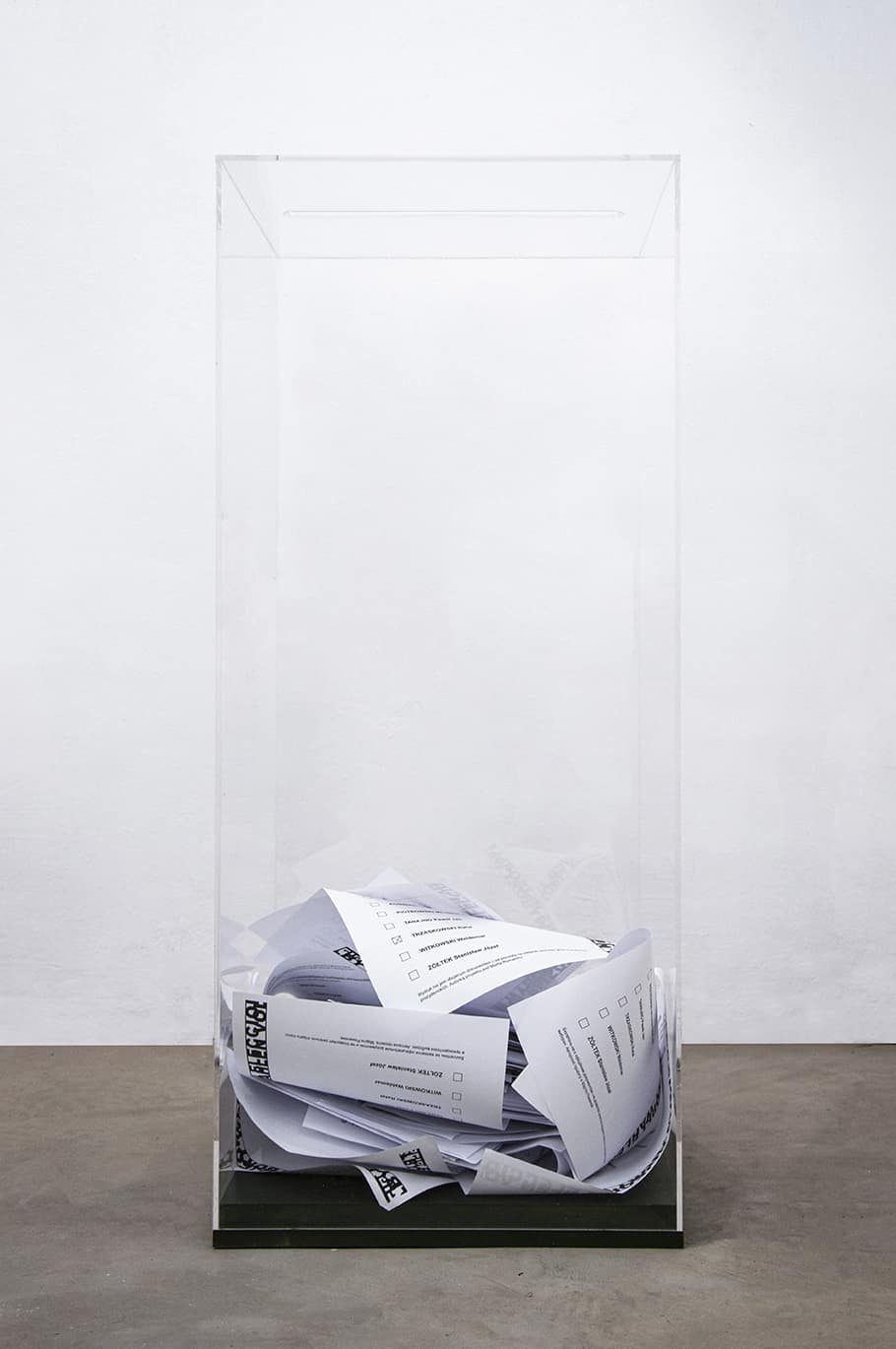
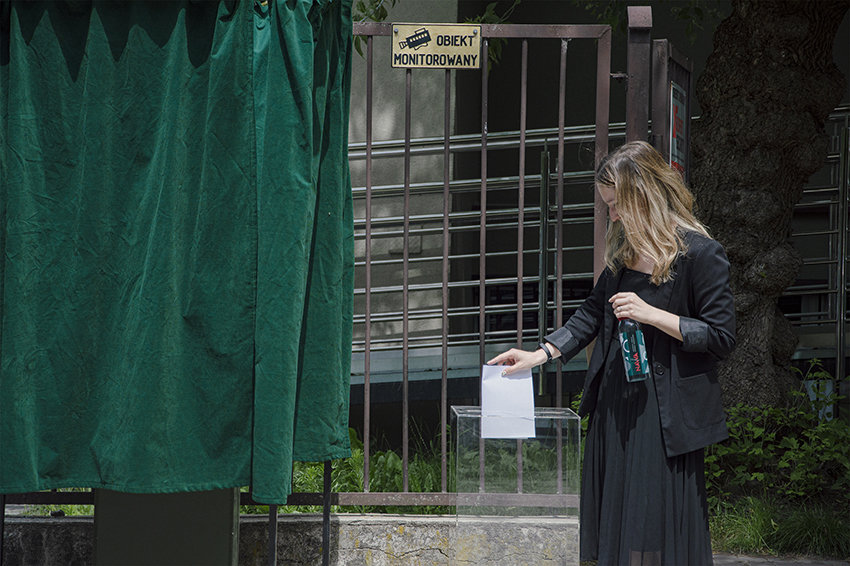
IMMIGRANT, TAKE A VOTE! (2020)
social action, film documentation
In the project titled Immigrant, Take a Vote! I refered to the issue of exclusion of new residents from making political decisions. The initiating of impossible events, aimed to raise the question of an immigrant’s role in a national state, and attempts to challenge the established norms and definitions. Who is a citizen? Are the accepted forms of democracy suited to the needs of today’s globalized society? Why in the light of rapid changes, outdated divisions still define the perception of the “other”?
An intervention happening which was carried out from 22 to 28 June – before the first round of presidential elections in Poland, was supposed to symbolically collect the votes of immigrants. Under the project, residents of Poland who do not hold the Polish citizenship could “vote” for the president of this country. The action was organized in six cities: Białystok, Gdańsk, Lublin, Poznań, Szczecin and Warsaw. The action took place in the public space of cities, as well as in art institutions (Biennale Warszawa, Centre for Contemporary Art Laznia in Gdańsk, Labyrinth Gallery in Lublin, Municipal gallery Arsenal in Białystok, Municipal gallery Arsenal in Poznań, Trafos Gallery in Szczecin). The project was part of the Master’s degree carried out at the Academy of Art in Szczecin.
FADED FLAGS (2020)
objects
The „Faded Flags” project is an attempt to imagine the future in which recognized today as obvious, the concept of nationality loses its importance and becomes only a historical element. Flags of Poland and Ukraine were sewn from bleached fabrics. The fabrics were originally white, yellow, red and blue, respectively.
Getting rid of the national colors, I wonder about the possible shape of a „better future”, in which there are no predefined markings that would allow you to easily identify the enemy. Action is a form of manifestation and concerns the possibility of creating a community whose foundation will be based on openness and equality, and not on the idea of nationality.
GERMAN FLAG (2020)
instalation
When the Swedish parent company Electrolux announced the closure of AEG’s main plant in Nuremberg at the end of 2005, workers strikes began. Electrolux cited the sharp fall in household appliance prices as the reason. 1700 workers were laid off, and the production of washing machines and dishwashers was moved mainly to Poland, employing, apart from local workers, also Ukrainians.
Putting fabrics of national german colours (yellow, red and black) in the washing machine and subjecting them to repeated washing and rinsing is an attempt to deprive the flag of the national context. In my work, I consider the issues that flow from the ruthlessness of the free labor market, social inequalities, and the relationship between democracy and regression.
The work was done as part of a residence at the Kreis gallery in Nuremberg.
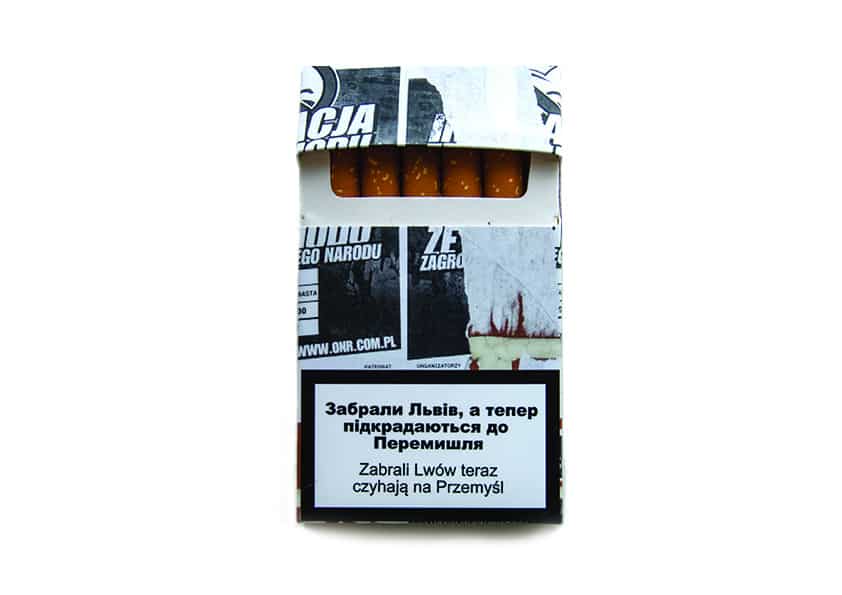
KIOSK (2018)
installation (in cooperation with Łukasz Surowiec)
The Kiock project is related to the contra- band smuggling from across the eastern border and the associated with this process stereotypes present in the perception of people engaged in this process. In this installation, packs of cigarettes served as a medium for communication. The texts written on the packs and the photos used are excerpts from articles about Ukrainian immigrants in Poland.
The project was carried out in cooperation with Łukasz Surowiec and Oleksandra Ovsianikowa. The installation was a continuation of the KIOCK installation realized in 2016 for the Museum of Emigration in Gdynia.
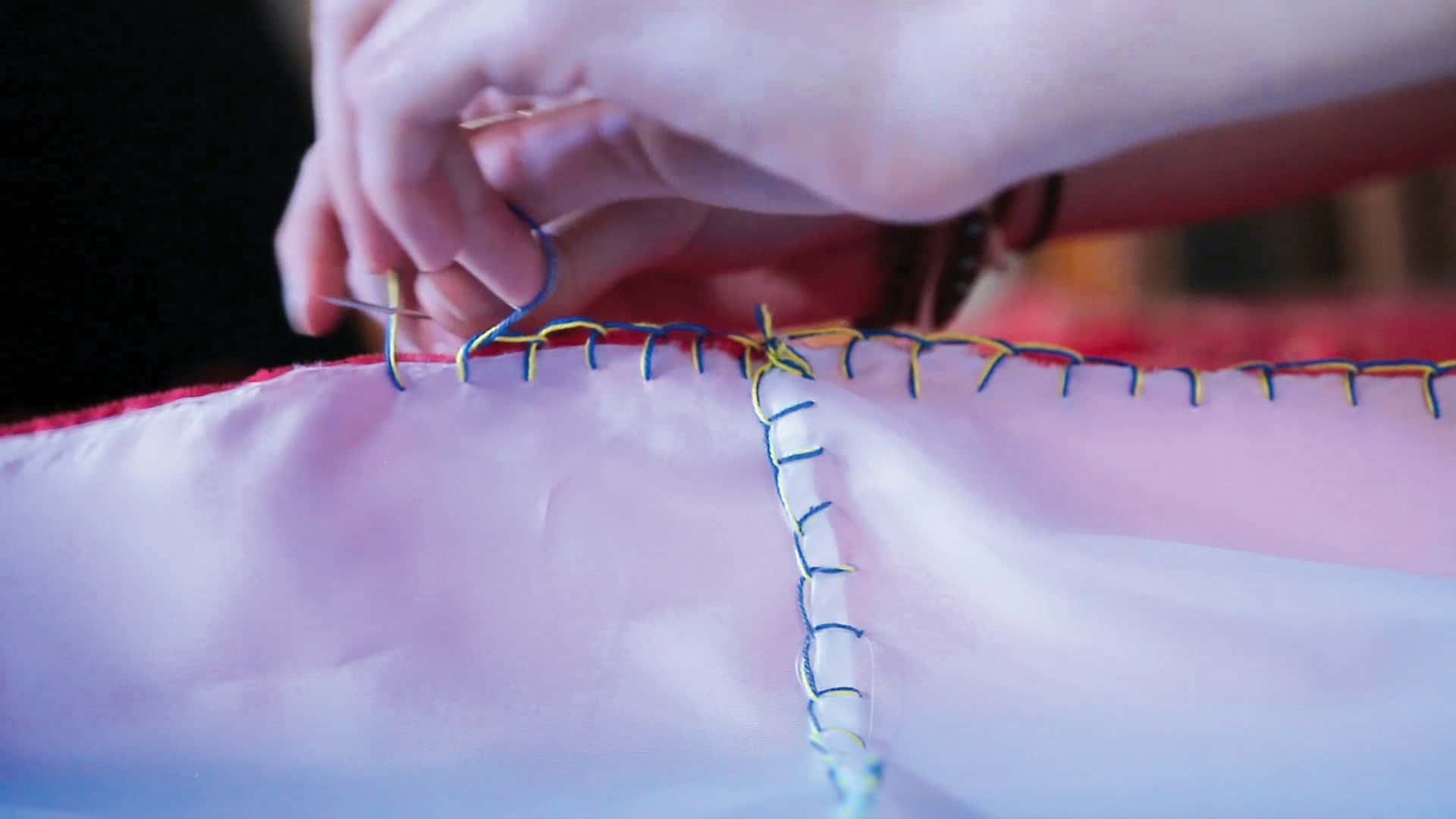
COLOURS (2019)
workshop, object
Ukrainians living in Poland were invited to jointly create the Polish flag, consisting of 44 white and 44 red pieces. Participants stitched together white and red pieces of material with yellow and blue threads. The project is an attempt to create a space in which Ukrainians living in Krakow could mark their presence. The meeting at the joint sewing of the flag was also an opportunity to exchange thoughts, conduct dialogue, and emphasize the development that flows from the meeting of cultures.
82,2 KG OF USED COFFEE (2020)
instalation
The project 82,2 kg of Used Coffee is an attempt to archive material that is a testimony to today’s era of global capitalism. The objects created are a result of the process of collecting coffee waste in Krakow cafes. Served in beautiful venues, that often were established as a result of gentrification, kilograms of coffee beans have now become a proof of continuous consumption present in „the first world”. The coffee market is historically associated with the European slave system. In modern days, it serves as a way of exploitation based on the social and economic inequalities. By stopping coffee remnants from utilization and decay, I would like to save the collected material for future generations as the evidence of the processes that take place today. The waste was collected in 22 cafes in Krakow in seven days.
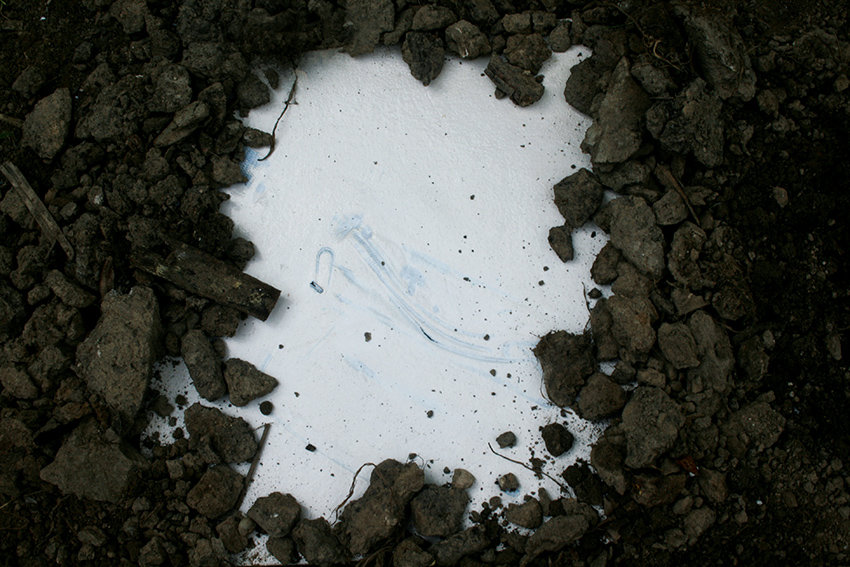
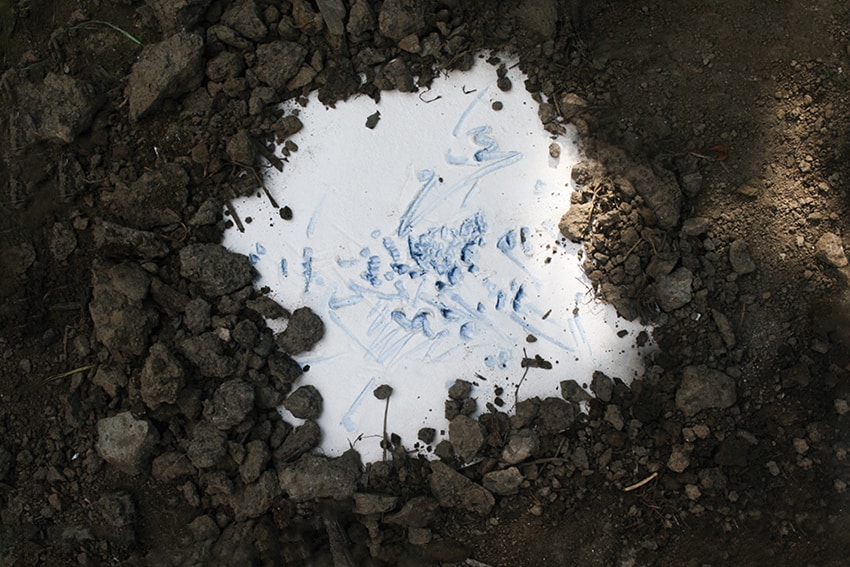
TRACES OF MEMORY (2017)
installation
Where the borderline of myself should be? When I take a pencil, it is not a mere piece of wood and graphite anymore. It helps me leave the mark I wish to leave. Objects become an extension of my body. We contact the world through the senses, and personal items support this contact and serve as intermediaries between the body and the outside world. For me, the objects I often encounter merge with me and become an inseparable element of some period of my life, evoke strong emotions and memories.
1. Charcoal for drawing. It was the first tool thanks to which I stopped being afraid to draw.
2. Broken Talisman. It was one of a few gifts from my father. After 2 months of wearing the necklace daily, it broke in two.
3. Belt pack. I received the belt pack from my grandmother when I moved to Poland. It was used to secure the most important things (mainly money) during several trips to Cracow.
FOUR TWO-HOUR LECTURES (2016)
Film
The project addresses the problem of the students from Ukraine who, in order to study in Poland, must bear huge extra costs.
The problem is presented from the perspective of people who „work” on the Polish-Ukrainian border. There, despite the stress and the risk, they try to earn some money by selling smuggled cigarettes and alcohol. In the video mate- rial presented, I juxtaposed two worlds: illegal work at risk and paid education. By taking up illegal work I wanted to find out for how long I would have to work to earn enough money to pay for one lecture.
